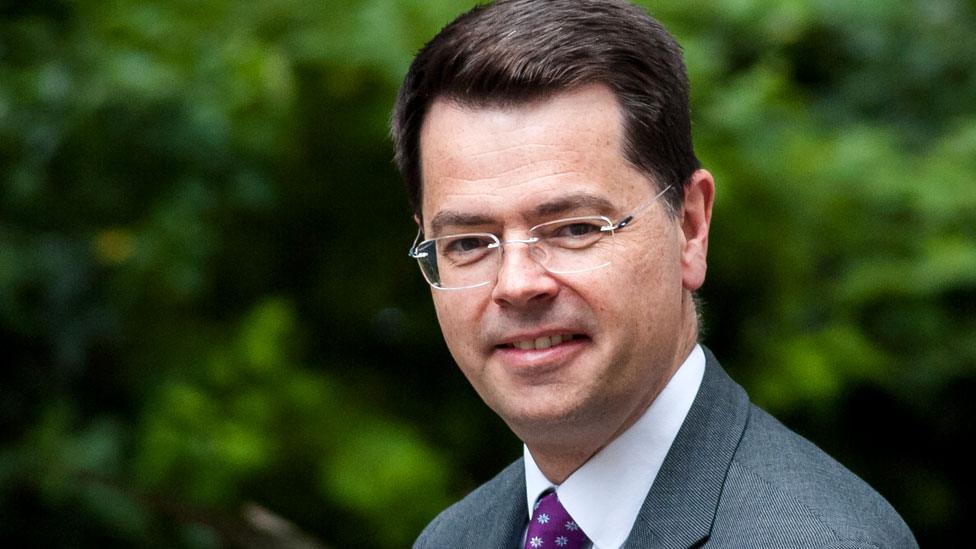By-election: Tory wobbles in true blue Bexley?
- Published
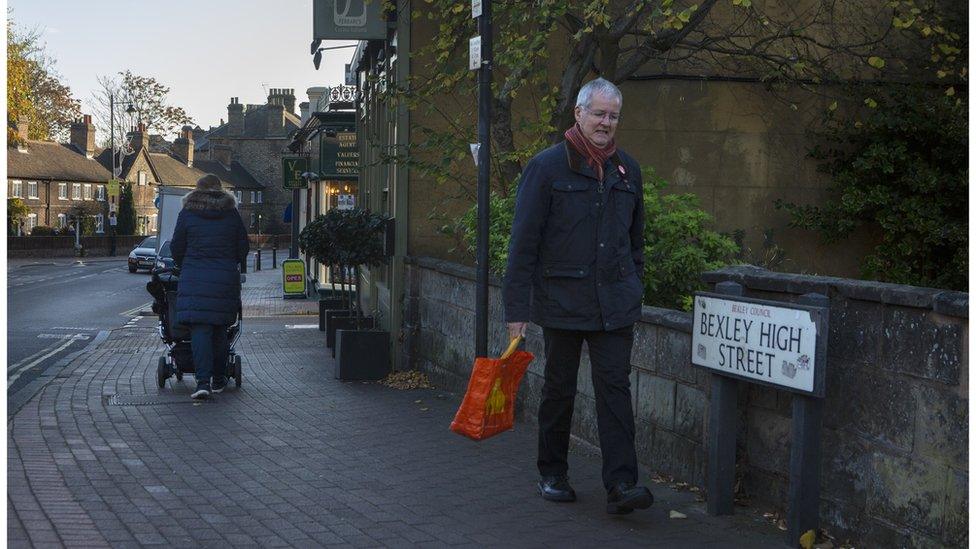
"To stand at such an important conference the other day and start talking about Peppa Pig and lose your place - how can this man be prime minister of this country?"
David Greenberg, 60, is a lifelong Conservative voter who has lived in Bexley all his life.
From conversations with customers at his family-run clothing boutique - on the high street since 1977 - he knows the area has always been "very blue".
But ahead of Thursday's Old Bexley and Sidcup by-election, he says it feels different.
Since 2019 and Brexit, a new B-word is dominating the conversation.
"We're all a little bit unsure about how things stand at the minute, obviously with what's going on in Westminster, with Boris," he says.
Boris Johnson's leadership, and promise to "Get Brexit Done", was seen as a major asset for the Tories at the 2019 general election where they won an 80-seat majority - but is patience with the Conservative leader wearing thin in this heartland seat?
Citing government promises to "level up", recent changes to the government's social care plans, HGV driver shortages impacting deliveries to his business, and illegal immigration, Mr Greenberg asks: "Can we trust him? I don't think so. When he opens his mouth, can we believe what he says? I don't."
Old Bexley and Sidcup has been a safe Conservative seat since its creation in 1983 - the party got 64.9% of the vote in 2019. Labour have come second since 1992, with UKIP rocketing into third place in 2015 and 2017 in this predominantly pro-Brexit patch.
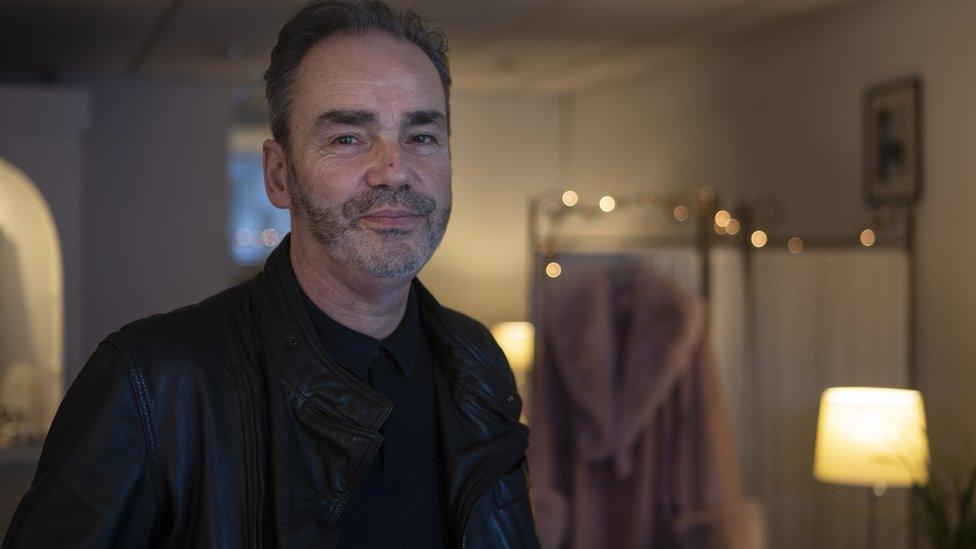
Local resident David Greenberg remembers the former Bexley MP James Brokenshire as a "terrific politician"
On the London commuter-belt, incomes here are higher than the national average and the suburb features both the urban bustle of Sidcup high street and the picturesque rural feel of Bexley village.
The by-election on 2 December was triggered after the death of the MP James Brokenshire, who Mr Greenberg describes as "a great man", "terrific politician" and "personal friend" who had Bexley village at heart - but he worries he will be a "hard act to follow".
Government ministers and big Conservative names - including Boris Johnson, deputy PM Dominic Raab, Chancellor Rishi Sunak and former PM Theresa May - have been out knocking on doors with Tory candidate Louie French, a local councillor.
A sign, perhaps, that they are taking nothing for granted in this reliably blue area.
The opposition parties are certainly talking a good fight.
Labour are telling voters on the doorstep and on social media to "send a message to Westminster".
Their candidate, Daniel Francis, has vowed not to take a second job if he wins, hoping to capitalise on weeks of headlines about "Tory sleaze".
But his campaign is also focusing on local issues, and discontent with the local Conservative-run council over bin strikes in the summer, council tax rises and a controversial decision to build new houses in a park in Old Farm Avenue, Sidcup.
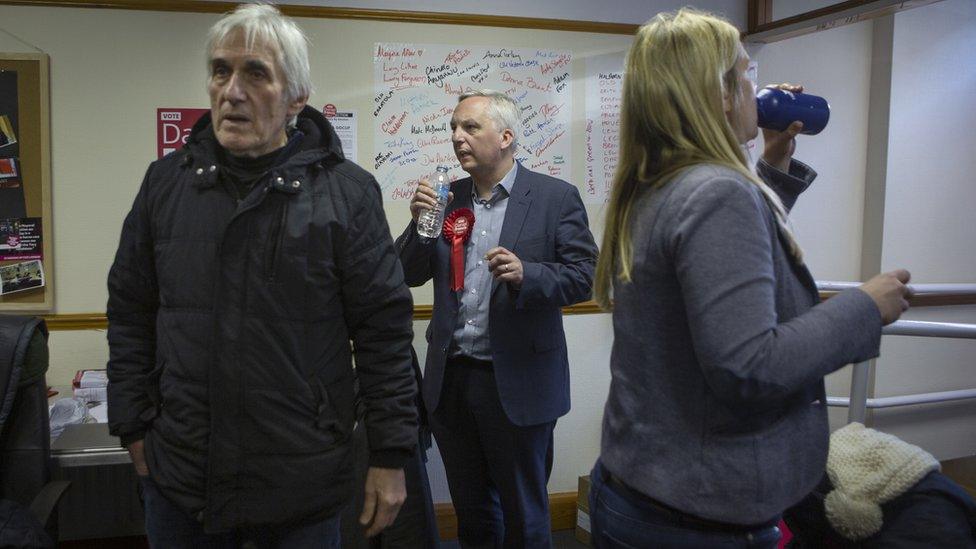
Labour candidate Daniel Francis has been a local councillor for 17 years
He's knocked on doors for Labour here for 27 years and been a councillor for 17, and claims it will be different this time.
"We are meeting a number of Conservative voters who won't be voting, a number switching over to Labour," he says.
Reform UK - formerly the Brexit Party - may no longer have Nigel Farage at the helm, but new leader Richard Tice is hoping to park his tanks on the area's well-trimmed Tory lawns just the same.
Brandishing a smartphone app that claims to record the voting preferences of everyone they canvass, party workers say they have knocked on 90% of doors with one week to go.
"Do you prefer the photo, or the real thing?" asks Mr Tice, as he hands residents a 20-page booklet with a glossy photograph of himself on the front.
It's his opener to a well-rehearsed charm offensive that includes "saving our boilers", a referendum on the government's net zero plans that he dubs "net stupid", cutting taxes, and zero tolerance to illegal immigration.
After listening to Mr Tice's pitch, local resident Marnie Clarke appears to agree about energy prices and the cost of living, but still feels undecided.
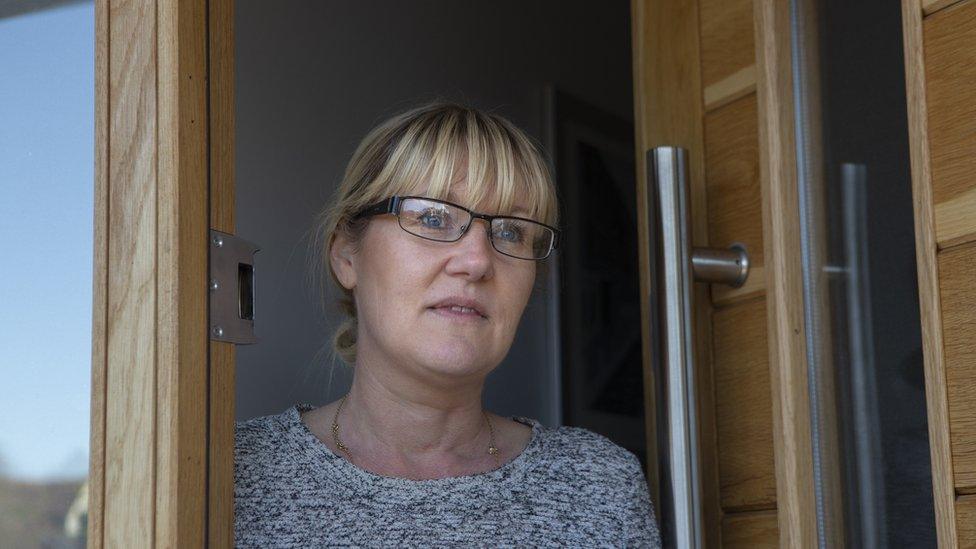
Politicians will be hoping to convince undecided voters like Marnie Clarke
"We've always voted Conservative but we're a bit split at the moment," she says.
The Liberal Democrats are hoping to replicate their stunning victory in April's Chesham and Amersham by-election, when they overturned a large Conservative majority.
Candidate Simone Reynolds says she is picking up concerns about the government's social care funding plans. She also claims to have met Conservative voters citing "sleaze scandals" as a reason they are undecided.
"Scandals" is the word offered up by Shah Syed, who has lived in Sidcup for five years.
He used to vote Labour, then switched to Conservative, but now thinks he cannot vote for the party again, saying: "Running a country is not running a theatre - you're dealing with people's futures and their lives."
Another former Conservative voter, Bridget Heylett, says we have a "shocking government" and plans to vote Labour "because I think Keir Starmer is not such a bad man, he's a lawyer".
Others are more sympathetic to Boris Johnson and his government.
"Boris? I think he's good at speaking, he's very articulate, he's very fun and jovial," says surveyor Simon Meeks, a formerly "staunch Tory" who is now undecided.
"I think he's done pretty well with things he's had to face, I don't have any major disagreements with him, with what he's been up against he's done pretty well.
"Maybe some of the jokes could be turned down a bit."
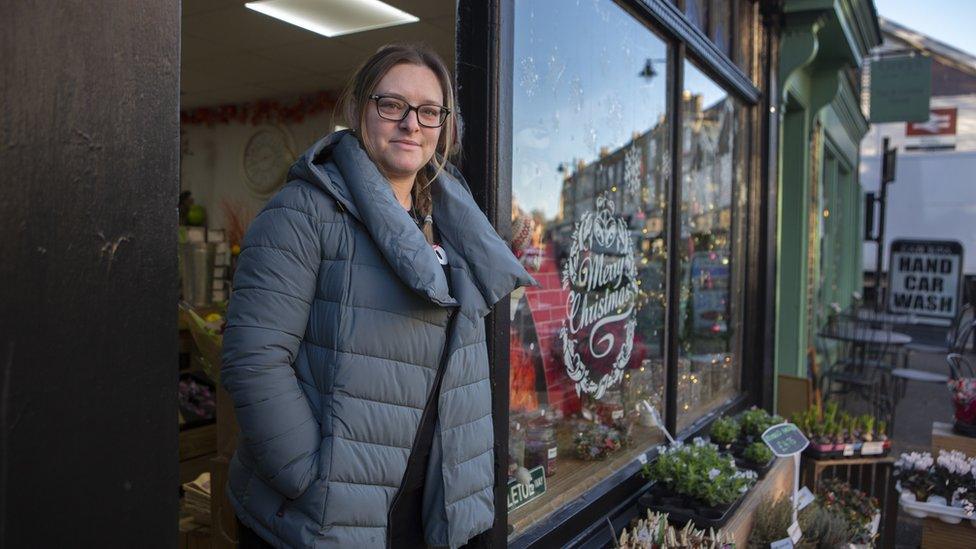
Florist Louise Dawson does not think she will vote at all
Louise Dawson, who runs the Flowers of Bexley Florist, has some sympathy with the government saying "it's not been a normal few years", but does not think she will vote at all this year.
On the government's handling of coronavirus she says: "You can't criticise someone until you were in that position."
But she adds it was "frustrating here previously as a retail shop to not be able to open for so long, not be able to serve people at the door, social distancing, we weren't even able to open the door and serve people that way."
The Green Party is having a decent run in national opinion polls, but the party has tended to come fourth or fifth in Bexley at general elections.
Their candidate Jonathan Rooks says he expects the Tories to hold the seat, but he has picked up concerns about climate change and air quality. He also claims to have detected some "frustration" with the Conservatives, despite always previously getting the impression that Boris Johnson was well-liked.
Conversations with voters are not a scientific guide to the national mood or even how a local poll will go, but it is notable how many residents want to offer their opinion on Mr Johnson.
The Conservatives did not respond to requests from the BBC to be allowed to accompany canvassers on the campaign trail.
But some senior Conservative MPs do not regard Bexley, a traditionally pro-Conservative, pro-Brexit, pro-Boris seat, as a litmus test for the prime minister's popularity.
One who knows the area well says they feel very confident, and that "sleaze" has not been as much of an issue as they thought.
One minister who has visited the patch points out that governing parties historically used to get a hammering at mid-term by-elections - so the fact they've even won some, like Hartlepool, is reason to be optimistic.
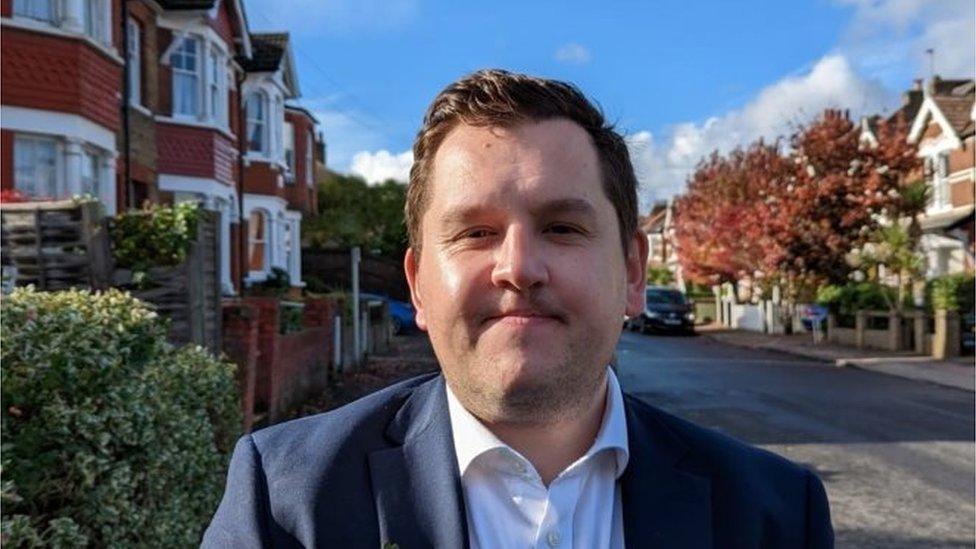
Conservative candidate Louie French is hoping to hold on to the seat for his party
Party sources feel chipper about what some describe as a "strong local candidate" in Louie French and say, while they've had some grumbles on the doorstep about sleaze and immigration, their campaign is focusing on what they've achieved and what they plan to do.
Their campaign literature and social media adverts use positive language; attacks on their opposition are noticeably absent.
After weeks of difficult headlines for the Tories at Westminster, Mr French pledged to one local newspaper, external that if he was elected he would not have a second job.
In social media videos, he promotes his "pride" to be from Bexley and his opposition to Transport for London's plans to charge vehicles registered outside London £3.50 to enter Greater London, which he brands Sadiq Khan's Outer London Tax.
Even the opposition all quietly admit the Conservatives' 19,000 majority would be very difficult to defeat for any party.
But if their majority is slashed - or even defeated against the odds - all eyes will be on how much, and by who, and what this means for less-safe seats at the next general election.
After a few weeks where relations between ministers and backbench Tory MPs have been rocky, the last thing the government wants is any suggestion the party's leadership is starting to cost them votes.
Listed alphabetically, the following 11 candidates will stand for election:
Elaine Frances Cheeseman, The English Democrats
Daniel Francis, Labour Party
Louie Thomas French, Conservative Party
Richard Hewison, Rejoin EU
David Michael Kurten, Heritage Party
John Edmund Poynton, UK Independence Party (UKIP)
Simone Reynolds, Liberal Democrats
Jonathan Scot Rooks, Green Party
Richard James Sunley Tice, Reform UK
Carol Margaret Valinejad, Christian Peoples Alliance
Mad Mike Young, Official Monster Raving Loony Party
Related topics
- Published8 October 2021
